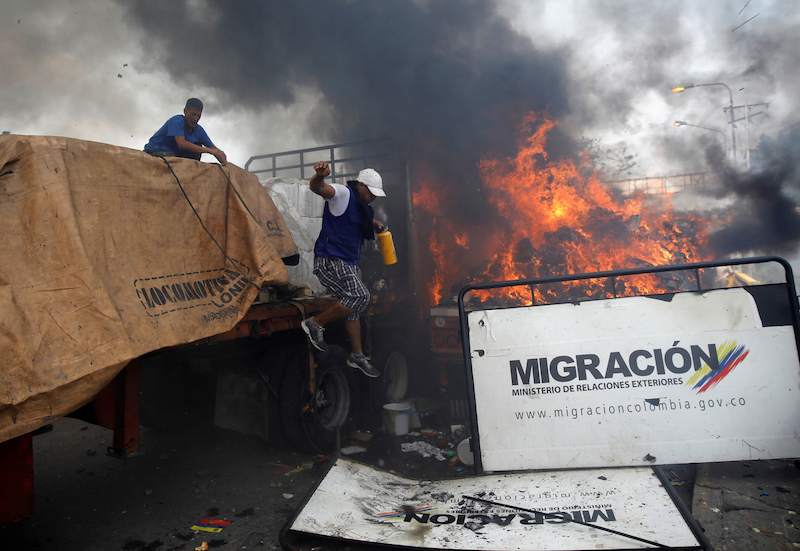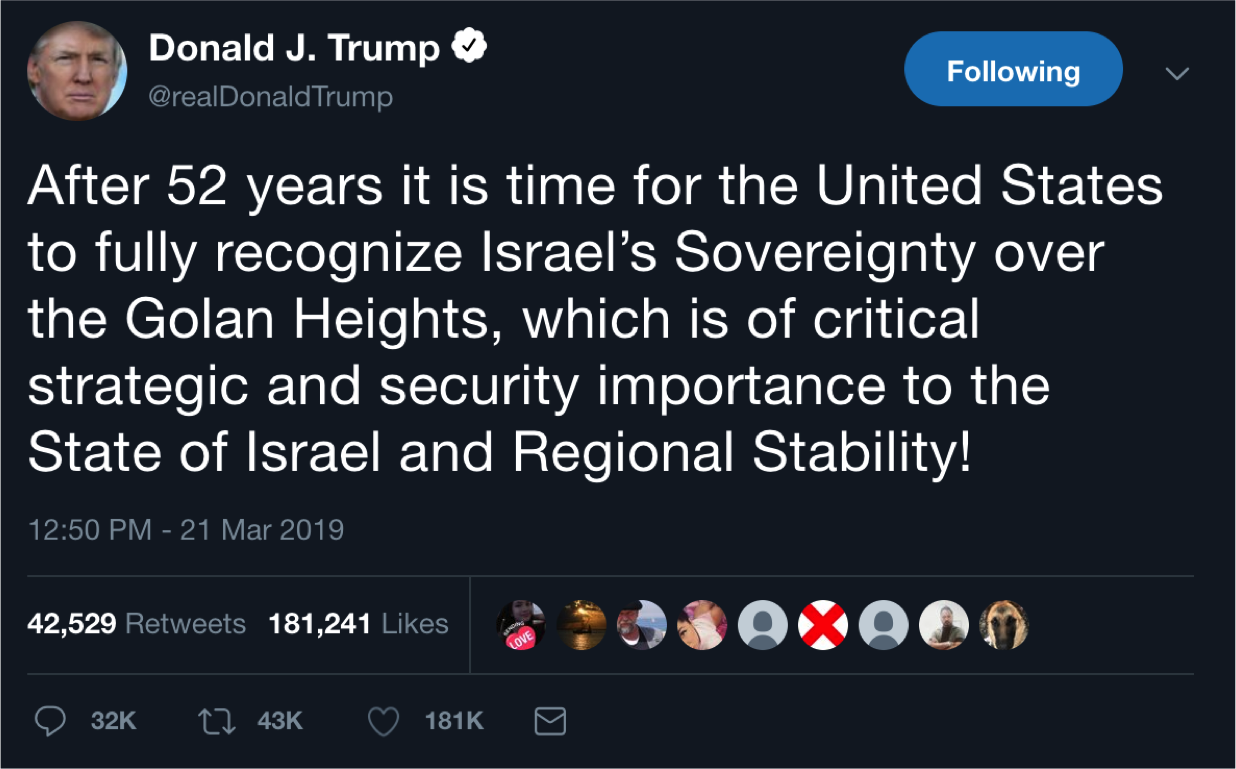On the morning of April 30th, Juan Guaidó announced a non-violent uprising against the Maduro government. He called the uprising “Operation Liberty” and for the first time, he openly invited the country’s military forces to join him. Broadcast on social media from an Air Force base in Caracas, the poorly produced video announcement was a confusing mixture of a populist call to action and an appeal to defend the Constitution from the usurpation of the Maduro regime. With Maduro under increasing pressure economically and politically, the time seems right for such a move yet it has seemed this way for years. Guaidó’s failure to spark any significant change under these conditions suggests that even in Venezuela there is more to achieving liberty than mobilizing enthusiasm for the cause; there must also be a plan.
Resistance Potential
There is a concept in the doctrine of revolution that seeks to measure the capacity of a society to change its government. Called “resistance potential,” one measures this capacity by an ambiguous dynamic of popular discontent, insurgent organization, inspirational leadership, geographic viability, and other factors. Without it, there is no possibility of a revolution. The good news for Guaidó, and the reason he keeps up the pressure on Maduro, is that resistance potential in Venezuela is extremely high.
An accelerating economic catastrophe exacerbates Venezuela’s political crisis. Home to the world’s largest proven oil reserve, Venezuela was once among the wealthiest nations on earth. But since Hugo Chavez first set the country on its current course in 1999, the economy has become increasingly reliant on crude oil, with exports reaching 98% of the nation’s external trade by value. This overreliance on a single commodity is unhealthy under normal circumstances but it is catastrophic with crude production at a 70-year low – nearly a third of the daily output achieved 20 years ago and half what it was in 2014. The slide has taken the currency with it, hitting ordinary Venezuelans hard and causing shortages in basic retail goods across the board. Hunger, unemployment, and desperation have become a feature of life for Venezuelans not wealthy enough or quick enough to leave before their savings were eliminated by hyperinflation exceeding 1.3 million percent.
The resultant humanitarian disaster has pushed 3.4 million desperate Venezuelans out of the country and is the fuel that feeds its resistance potential. Increasingly reliant on oppression and corruption to maintain power, Maduro is the focus of popular discontent that erupted in a spectacular attempt on his life by drone-delivered bombs in August 2018. Though he survived the attempt, it is likely this led Guaidó, by then the President of the tightly controlled National Assembly, to invoke an obscure clause in the Constitution allowing him to declare himself President in January. Since then Guaidó has done little beyond calling for popular demonstrations, though that changed in February when he attempted to spark an uprising by forcing humanitarian aid across the border from Colombia. Maduro easily countered the ill-conceived move, causing a dramatic confrontation and burning of the aid on the Santander Bridge. Somehow Guaidó’s credibility survived mostly intact even though many passionate Venezuelan volunteers did not.

A Vision Without a Plan
Juan Guaidó believes the Maduro regime is ready for a fall, but his failures prove it takes more than resistance potential to change a government. Guaidó has a vision of Venezuela that is prosperous under his leadership and free of Maduro, but Guaidó is a tactical thinker, not a strategist. His political career thus far, and the public struggles he hoped would trigger Maduro’s downfall, were poorly planned and opportunistic. Not only does Guaidó lack a plan for success, he lacks the institutional capacity necessary to implement a plan in the first place. To understand this, one must know how power works in modern Venezuela.
The Venezuelan military, particularly the Army, is the guarantor of the Maduro regime’s viability. The basis for this arrangement is a patronage system that privileges the business interests of senior military officers and their families. Of all the failing institutions of the Venezuelan government, the military and police get paid first and they repay that patronage with loyalty. President Trump’s 18 February appeal directly to the Bolivarian Military to ignore their orders indicates a basic understanding of this in Washington, yet Guaidó made no similar moves to attract the Venezuelan officer corps to his cause until this morning. Doing so will require more than platitudes about liberty and the will of the people. It will require amnesty for senior officers, a strategy for paying salaries and funding the military through the transition, and at least a partial guarantee the patronage system will not be immediately dismantled. At this time, Guaidó doesn’t even have a designated Minister of Defense or a General Officer prepared to offer advice and take command of the military if required.
This apparent oversight cannot be attributed only to a flawed or non-existent strategy. With few exceptions, Guaidó’s team consists of his peers in the national assembly, many of whom are younger than he and lack bureaucratic experience. They struggle with funding and are invariably double- or triple-hatted. In the few instances where they manage well-defined ministerial portfolios, they do so under ambiguous authority, without the support of a single institution staffed, funded, and equipped to carry out the functions of government, and often in direct contravention of a Maduro official that does have proper agency backing. Needless to say these are very challenging conditions under which to manage a national crisis, especially one under tremendous pressure from external stakeholders.
Making Liberty
Despite the apparent shortcomings of Guaidó’s strategy and planning, he is a bold leader of character that puts himself at risk to achieve a positive vision for Venezuela. His apparent misreading of the country’s resistance potential and hesitation to recruit the military is perhaps better understood by recognizing that he is not a revolutionary. Guaidó does not want to fundamentally change Venezuela. He does not seek to abolish the legislature, defeat the National Bolivarian Armed Forces, or put his name on the Presidential palace. Instead, he wants to take over the existing system, and he wants to do so within the legal parameters available to him under the country’s current constitution. Until now he has been reliant upon popular demonstrations to exert pressure on Maduro to walk away, but for Operation Liberty to succeed, Guaidó will need a plan that draws the military away from Maduro. Liberty doesn’t just happen, it is made.

Lino Miani is a retired US Army Special Forces officer, author of The Sulu Arms Market, and CEO of Navisio Global LLC. He was directly involved with Guaidó’s failed attempt to deliver humanitarian aid to Venezuela in February 2019. You can see his first hand observations of that dramatic event on this Twitter thread from that day.






